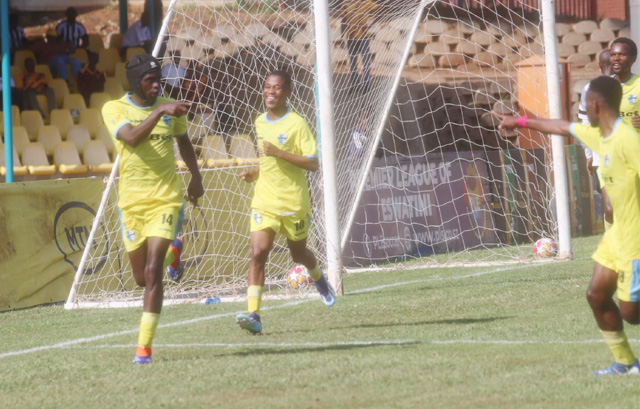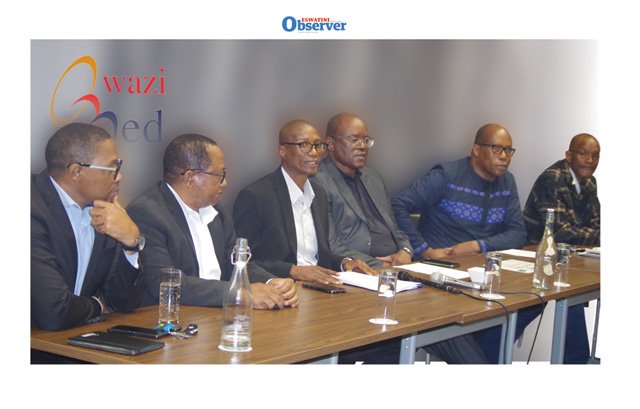By Ackel Zwane | 2018-07-27

IN the first of its kind in the history of a democratic dispensation the nation goes for nominations without a final voters roll this weekend.
More intriguing is that tomorrow is not a public holiday and workers will be disenfranchised in that no employer will lose productive time for the staff to abandon their work station in order to go and take part in the nominations.
We had also expected the list of nomination centres at dates to have been distributed together with the final voters roll in order to allow for voters to scrutinise and detect rented and non-qualifying candidates from being nominated in the said centres.
Now the bigger question arises, what will happen after the Elections and Boundary Commission pronounces the final voters’ roll, will it carry the same figure as that which was told the Head of State, definitely not, given the floodgates of complaints at the hands of the Elections Commission.
We also expect that the council of ministers will cease to be tonight so that by tomorrow they will assume the status of ordinary citizen, that of being at par with everybody else on the day and carry with them the usual posture of simpleton as opposed to the previous peak theory of might and power.
Since the Tinkhundla system of governance allows for individual status at elections, not group or party representation, all citizens should have been allowed at both the nominations, primary and secondary elections the same level ground, by declaring these days public holidays in order for all citizens to enjoy that same status of being equal just this once.
It would seem the ideal is not to rush for the nominations if ill-prepared to guarantee that voters will stand on a level platform.
Again because a large number of the voters will be at work and might miss the opportunity to nominate candidates in their areas of permanent residence, the final numbers in the voters roll are expected to drop drastically.
Already there has been talk about the ground not being level between cabinet ministers and members of Parliament over the five year term regarding access to national broadcasters through which the latter would reach their constituencies.
However the smart ones took to private and other social media platforms to keep the fires burning, that they were still alive and therefore their constituencies must remember them in the whole of the five years in the House and beyond with prospects of voting them back over and over again.
leading
Now, towards the last days leading to the dissolution of Parliament on June 20 at Sibaya, the law makers were no longer interested in Parliament business and for days on end could not form a quorum, why, because they were already preoccupied with the business of influencing things back in the constituency in case newcomers overtook them.
This clearly means the whole system of election is less to do about serving the interest of the voter but to remain in Parliament and draw all the goodies that come with the job.
Now we are waiting for elections observers to educate us on how the EBC has applied the country’s elections laws or how much it has failed to amend the law in order to avoid the hiccups that come with a poorly organised election such as the release of an audited voters’ roll in time for the voters to scrutinise it and detect further defects before it is acceptable as being adequate to root out rigging, which has been rife since the elections under the national constitution began.
In 2013 the ELECTION EXPERTS MISSION (EEM) concluded that Eswatini had a modern system of voters’ registration that allows the quick identification of voters, exposes double registrations and avoids double-voting. Therefore, the use of indelible ink is redundant and unnecessary besides being an extra financial burden.
processes
The EBC should consider its elimination in future electoral processes. The registration of voters is carried out at chiefdom level and it is at that level a person foreign to the chiefdom should be identified and registered or not.
Once this person is registered s/he has the right to vote at that chiefdom. “The EBC should enforce this right and avoid that election officials impede legally registered voters to vote as consequence of ad hoc decisions on election day even if such voters admit they were strangers to the chiefdom.”
EEM recommended that EBC should be the authority, and not local officials, to decide on whether an election should be extended beyond the opening hours of the polling station in order to avoid confusion and arbitrary decisions. The EBC should consider the establishment of new polling stations to avoid the overcrowding and huge lines observed during the Primary elections, and in some polling stations during the Secondary elections. Since polling stations are generally located in schools, the establishment of new polling stations on the same location would not create any logistical or financial constraints besides, in some cases, the costs of hiring extra polling staff.
The schools might become polling centres and such arrangement would certainly eliminate huge lines and overcrowding inside and outside the polling stations.
The EBC should consider the adoption of strict procedures to guide the voting and, especially, the counting processes.
The voting cycle, and specifically the issuing of ballots to voters, should follow a uniform procedure and not rely on the discretion of each presiding officer.
It is hoped that over the past five years the EBC has not been drooling but has taken into account every recommendation by the international observers with a view of coming out with a clean election which is wholly owned and for the people of Eswatini.
share story
Post Your Comments Below
Social media users have reacted with shock and sorrow to the death of former Mhlume Unite...
Health officials have reported a significant decrease in new HIV infections among men, in...

Sisonkhe FC ……........….. (0)2
Mpendulo 55th, Thab...

THE recent turn of events at SwaziMed has underscored deep-rooted governance challenges that thre...
All material © Swazi Observer. Material may not be published or reproduced in any form without prior written permission.
Design by Real Image Internet